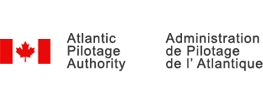Job Opportunities
Current Positions
Full time Employment:
Casual Employment:
Privacy Notice:
Personal information collected on this form will only be used for the purpose(s) indicated on the form. Access to the personal information will be limited to those who require it for program or administrative purposes. Any privacy inquiries or concerns regarding personal information collected, used, or disclosed by the APA, or requests for a copy of our Privacy Policy, may be directed the APA ATIP Coordinator at [email protected]
Pilot Qualifications
The Qualifications required to become a pilot are documented within the General Pilotage Regulations and the Atlantic Pilotage Authority Regulations.
The General Pilotage Regulations contain information on:
- Health Qualifications (sections 2 through 8);
- Marine Certificate Qualifications (section 10);
- Radio and Bridge Qualifications (section 11); and
- Experience at Sea Qualifications (section 12).
- Qualifications for Holders of Licences and Pilotage Certificates (section 22.20-22.24);
- Examinations for a pilot licence or pilotage certificate (section 22.28); and
- Documentation required from applicants for a licence or pilotage certificate (section 22.22)
Launchmaster
The Launchmaster is the Captain of the pilot launch. The primary responsibility of the Launchmaster is to safely transfer Marine Pilots between the Pilot Boat and a ship entering or leaving a compulsory pilotage area. The Launchmaster has to possess superior boat handling skills and excellent seamanship to maneuver the pilot boat alongside an oceangoing vessel, often in open water. To become a Launchmaster you must be at least 18 years old, have a valid 150 Ton Certification with Sen II and documented sea time, valid annual Seafarer’s medical, ROC-MC, Marine Advanced First Aid/CPR Level C and WHMIS.
Launchmasters need to have:
- Knowledge of local tides, waters, marine hazards and weather conditions
- Precise navigational skills with or without equipment
- Skill using communications devises such as radios, cell phones, etc
- Knowledge of electronics and computer equipment
- Knowledge of basic mechanics and general vessel maintenance
- Planning and Organizational skills
- Quick Decision-making and judgment skills
- Good communication and People skills
- General knowledge of math and physics
Launchmasters need to be disciplined, mature, responsible and adaptable to be able to work shifts that includes evenings and weekends. They work in all weather conditions including rough seas. Launchmasters must work within a team environment as they have contact with harbour pilots, managers, and dispatchers and are responsible to supervise the Deckhand.
Deckhand
A Deckhand’s role is to assist Marine Pilots in ascending and descending a pilot ladder or accommodation ladder, to assist with berthing, letting go and anchoring the vessel, to monitor the engine room, refuel the vessel, and perform general maintenance. To become a Deckhand you must be at least 18 years old, have valid MED’s A2 or higher, valid annual Seafarer’s medical, Marine First Aid/CPR Level C and WHMIS.
Deckhands need to have:
- Knowledge of rope handling and the use of knots and lashings on a vessel
- Knowledge of local tides, waters, marine hazards and weather conditions
- Knowledge of safety and emergency procedures on a vessel
- Excellent communication skills with an attention to detail
- Knowledge of electronics and computer equipment
- Knowledge of general vessel maintenance
- Planning and Organizational skills
- Quick Decision-making and judgment skills
- Good communication and People skills
- General knowledge of math and physics
Deckhands need to be disciplined, mature, responsible and adaptable to be able to work shifts that includes evenings and weekends. They work in all weather conditions including rough seas. Deckhands must work within a team environment, under the direction of the Launchmaster, and have contact with harbour pilots and office staff.
